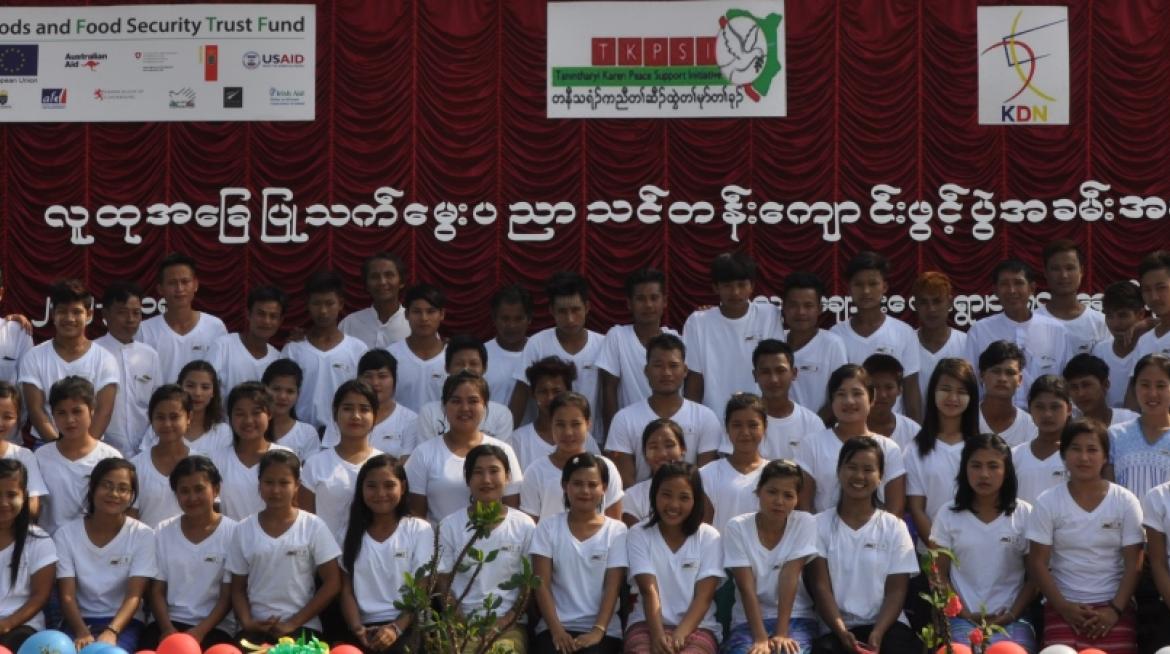
About an hour’s drive from the city of Dawei, located against the backdrop of Tanintharyi State hills, the newly-built Karen Vocational Training Center is bustling with life. The official opening ceremony will soon begin and representatives from local communities and project partners are gathering on the compound, as are the students.
Among them is Aye Aye Thu from the Marlakarchaung village. The 20-year-old takes a sewing course at the center, but today she will be on stage introducing the speakers at the opening ceremony. Speaking in front of almost 200 people is no easy task, but she does not shy away from a challenge. After all, she is her to pursue her dreams: set up a tailoring shop in her home village, in order to save money for further education.
The center’s development is led by the Karen Development Network, as part of the Enhanced Livelihoods for Displaced People project, funded by LIFT. Together with the Tanintharyi Karen Peace Support Initiative and Covenant Consult, this project is strongly rooted within the community. There is close involvement and dialogue between village communities, village-based organisations, and local authorities of both the Government of the Union of Myanmar and the Karen National Union. Conflict-sensitive principles guide the project. It is a truly locally-owned project.
There have been earlier trainings provided in the area, but the experience of many was that there were not enough follow-up actions to effectively link students with jobs. To deal with this, a labour market needs assessment was conducted prior to the development of the center. This included discussions and information sessions with the community, to identify the needs of the community and ensure that the courses were relevant to people in the area. Six courses are now offered at the center:
- Mechanics
- Masonry
- Carpentry
- Baking and cooking
- Traditional weaving
- Sewing
There are currently more than 50 students enrolled, and all live in the dormitories on the compound. The first courses started on the 23 January, and finished on the 6 March. During the courses, students have the opportunity to gain experience at a workplace, and with support of the project will be able to get a start-up grant to set up their own businesses.
One of them is Maung Thein Lwin. Coming from the village of Paedak, he is here to study masonry.
“I chose this subject because I want to set up my own masonry business”, 25-year-old Maung Thein Lwin explained. His face lights up as he continues: “In my village, there are no masons, so this training center is an opportunity for me to fill in the gap. I can build a secure future and contribute to my village”.
The training center is run by a board of directors selected from the local stakeholders of the project. In terms of sustainability, the center aims to be self-supporting at the end of the project in June 2019, running without the need for external funding. In the meantime, new cohorts of students will continue to enrol for training.
Aye Aye Thu will have graduated by then. Her presentation at the opening ceremony went smoothly, providing her with extra confidence to start her own business in her hometown.


